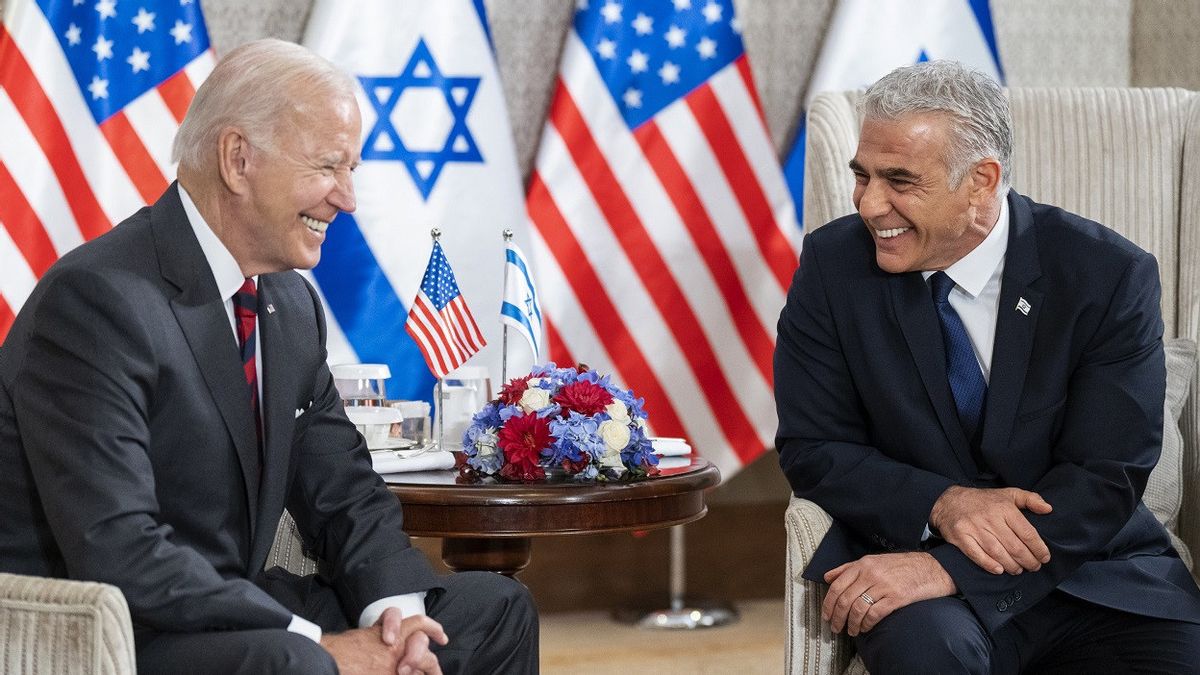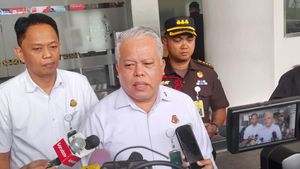JAKARTA - United States President Joe Biden and Israeli Prime Minister Yair Lapid signed a joint pledge on Thursday to prevent Iran's nuclear weapons, a show of unity by allies long divided over diplomacy with Tehran.
The effort, part of the 'Jerusalem Declaration' that crowned Joe Biden's first visit to Israel as president, came a day after he told local TV stations he was open to the use of "last resort" force against Iran, an apparent move to accommodate Israel's actions. calling for a credible military threat by world powers.
"We will not allow Iran to acquire nuclear weapons," Biden said at a news conference after signing the declaration.
Thursday's statement reaffirmed US support for Israel's regional military superiority, as well as its ability "to defend itself on its own". Widely believed to possess the only nuclear weapon in the Middle East, Israel sees Iran as an existential threat.
"The United States stresses that an integral part of this pledge is its commitment to never allow Iran to acquire a nuclear weapon, and that it stands ready to use all elements of its national power to ensure that outcome," the statement added.

Meanwhile, PM Lapid uses this posture as a way to avoid open conflict.
"The only way to stop Iran's nukes is if Iran knows the free world will use force," he said after the signing ceremony.
Speaking alongside him, President Biden described Iran's nuclear deterrence as a "vital security interest for Israel and the United States and, I would add, for the rest of the world as well".
There was no immediate comment from Tehran. In 2015, Iran signed an international agreement limiting its nuclear project to the potential for making bombs. In 2018, then-US President Donald Trump took the US out of the pact, deeming it insufficient, a withdrawal that Israel welcomed.
Iran has since stepped up some nuclear activities, putting time running on world powers' efforts to return to the deal in the Vienna talks.
VOIR éGALEMENT:
Separately, Hamas, the Islamist group that has helped spearhead the Palestinian struggle against Israel, condemned the move. Hamas leader Ismail Haniyeh issued a statement calling for the formation of a "political alliance to protect the region from domination, normalization, and dispossession of its wealth".
A US official, asked if Thursday's declaration was about buying time with Israel as Washington pursued negotiations with Iran, said: "If Iran wants to sign the deal that was negotiated in Vienna, we have made it very clear that we are prepared to do so. the same time, if not, we will continue to increase our sanctions pressure, we will continue to increase Iran's diplomatic isolation."
The English, Chinese, Japanese, Arabic, and French versions are automatically generated by the AI. So there may still be inaccuracies in translating, please always see Indonesian as our main language. (system supported by DigitalSiber.id)













